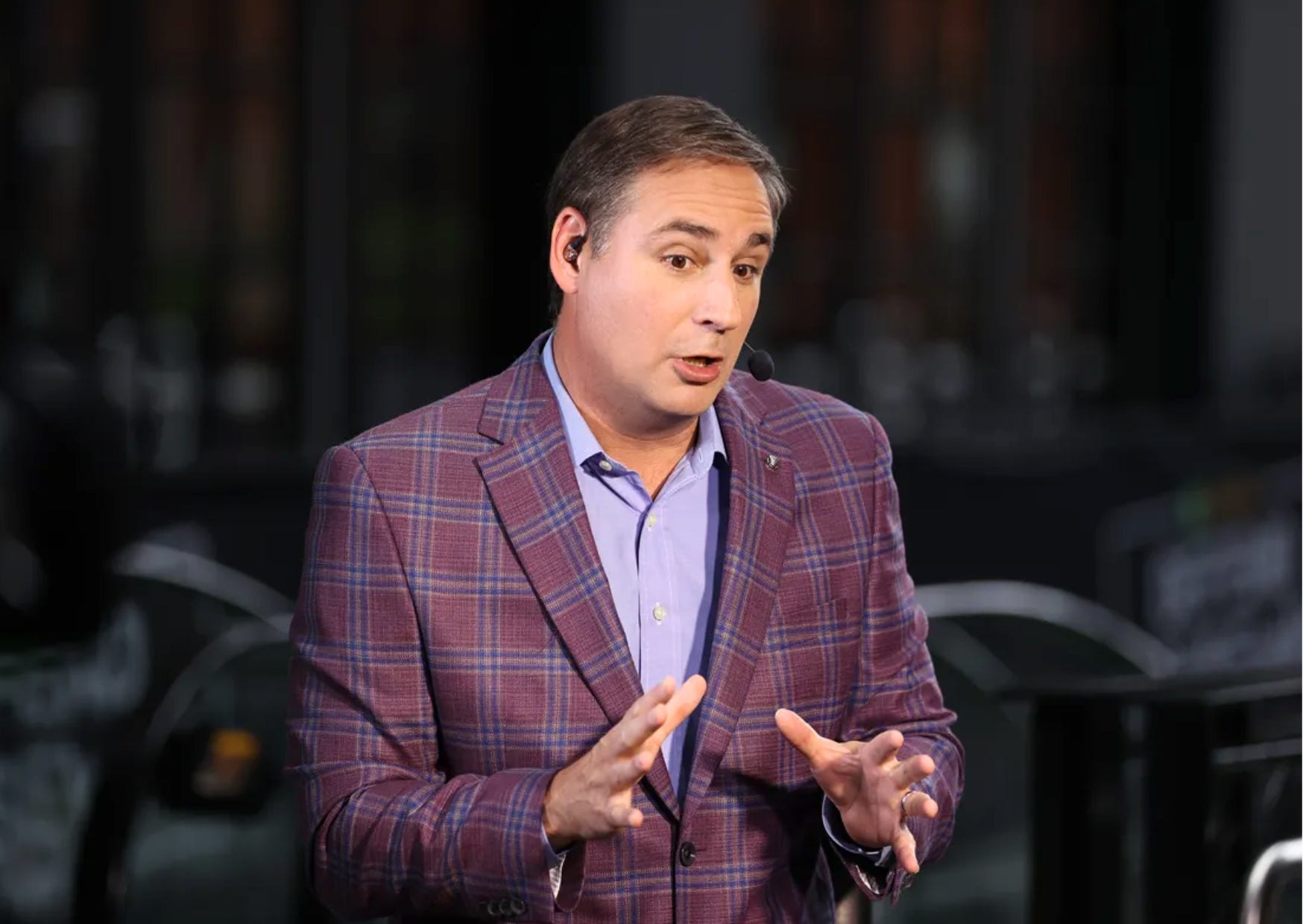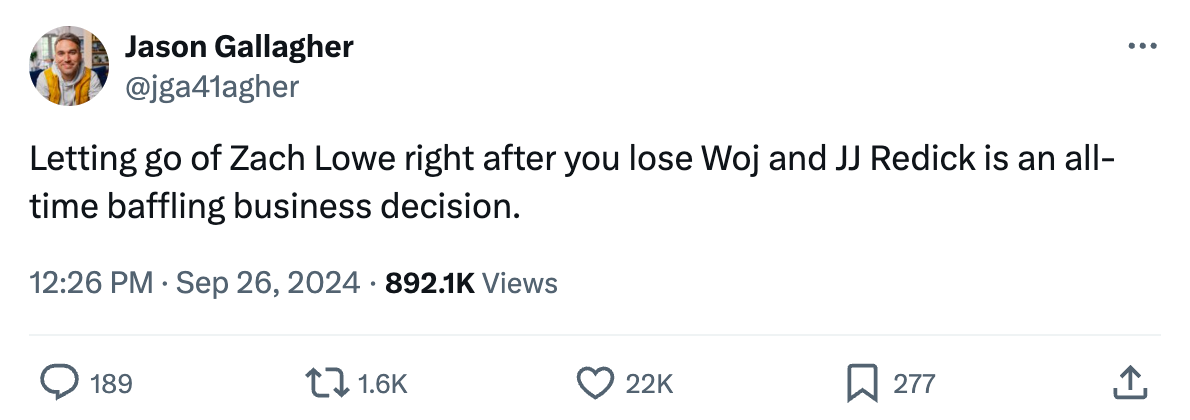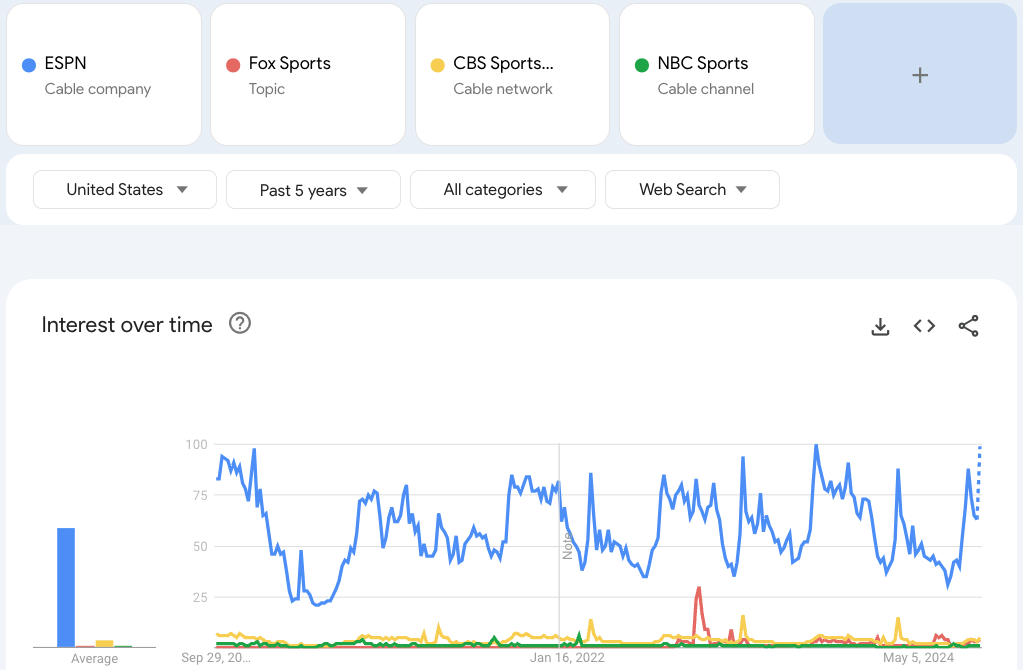Zach Lowe’s Dismissal Highlights ESPN’s Shifting Strategy
Zach Lowe’s Dismissal Highlights ESPN’s Shifting StrategyEveryone says they don’t want rage-bait-style content. ESPN’s data tells them they do.
ESPN completed its latest round of layoffs last week, firing popular NBA writer Zach Lowe. Zach is not only one of the country’s most popular basketball writers but he is sort of a unicorn, one of the few people in sports media who are truly good at writing, podcasting, TV hits, analyzing games, and communicating thoughts to the viewer. Lowe’s layoff came as a surprise to many because 1) ESPN just agreed to a new media rights deal with the NBA worth $2.6 billion annually, and 2) rather than bolstering that investment with high-quality coverage, the worldwide leader in sports has now lost Adrian Wojnarowski, Doc Rivers, JJ Redick, and Zach Lowe this year alone. The Athletic is reporting that ESPN’s dismissal of Zach Lowe was primarily due to his expensive salary, which was more than $1 million a year. And while that played a role in the decision, Lowe’s firing speaks more to ESPN’s shifting content strategy. “It feels like [ESPN] is moving towards ‘it’s a Knicks playoff game, here’s Stephen A’s entrance, and that’s what they think people want,” Bill Simmons said on his podcast. Think of ESPN’s business as a barbell. On one side, the sports media company pays billions of dollars annually to broadcast games (because almost all of their revenue is dependent on cable affiliate fees), while on the other side, ESPN’s remaining resources are almost exclusively focused on creating content that drives viewership. This put Zach Lowe in a weird spot. His seven-figure salary was significantly less than Stephen A. Smith, who is seeking a $100 million deal from ESPN. However, most of Lowe’s thoughtful pieces of analysis were placed behind ESPN’s paywall, which is a much smaller business than cable. And the problem is that Lowe’s content requires an attention span of more than five seconds, and if you don’t have that, it doesn’t translate to millions of views on social media or drive increased viewership on TV. For example, earlier this year, ESPN posted a video of Stephen A. Smith doing a tunnel walk before a Knicks playoff game in New York. It was a silly video that added no editorial value to the playoff game, but it generated millions of views online and probably had a 10x higher engagement rate than any of Lowe’s intelligent analyses. Combining this type of content with premium sports rights is one of the main reasons ESPN still has a stranglehold on most American sports fans. Despite losing an immense amount of talent over the last decade, including people like Bill Simmons, Dan Le Batard, Skip Bayless, Colin Cowherd, and Ryen Russillo, ESPN’s firing of Zach Lowe is essentially the company admitting they can’t properly monetize his content. Many fans say they don’t want this rage-bait style of content, and sports marketers will tell you that higher-value content is worth the investment because it attracts a higher-value audience, which, in turn, buys subscriptions and attracts advertisers. That’s not necessarily true, though. ESPN makes every decision based on data, from the talent it hires and fires to where editorial content is placed on its website. That’s why ESPN spent a week talking about the Los Angeles Lakers drafting Bronny James 55th overall in the NBA draft while most fans argued that they didn’t care. And it’s most certainly why there is less and less room for someone like Zach Lowe at ESPN — a thoughtful analyst with good content who doesn’t drive huge engagement. My argument to this is that ESPN should have found more ways to leverage Zach Lowe because his content is good, assigning him more quick, action-packed TV hits. And his dismissal lowers the network’s overall credibility, even if it makes them less money. But the truth is that the data tells ESPN that fans value rage-bait-style content more than thoughtful analysis, despite what they say online. Or, in other words, ESPN’s show First Take talks about the Dallas Cowboys every morning, no matter how poorly they are playing, because data tells them viewers are more engaged when they do that. As someone who values good, smart content, this frustrated me for a long time. I got over it after a while, though, because I realized independent media was a better option. Zach Lowe will be upset for a few days. Who wouldn’t be upset after getting fired? But after he licks his wounds, Lowe will be overwhelmed with the positive support he has received online, and he’ll quickly realize that life is much better on the other side. Some people have speculated that Bill Simmons will hire Zach Lowe at The Ringer, allowing him to write and podcast about whatever he wants regardless of how that content performs on social media. However, Lowe could also make seven figures by starting his own business, writing blogs online, and podcasting under his own name. Lowe’s content will improve because ESPN isn’t telling him what to discuss. ESPN will save money by focusing on content that drives viewership to its OTT app (because anyone who consumes Zach Lowe’s content is likely already watching the NBA anyway). And the biggest winners will be fans, who are upset about ESPN’s decision today but will eventually realize that Lowe’s content is great regardless of where he works and it can actually be much better now that he isn’t at ESPN. If you enjoyed this breakdown, share it with your friends. Join my sports business community on Microsoft Teams. Huddle Up is a 3x weekly newsletter that breaks down the business and money behind sports. If you are not a subscriber, sign up and join 125,000+ others who receive it directly in their inbox each week. You’re currently a free subscriber to Huddle Up. For the full experience, upgrade your subscription.
© 2024 |



